By Olivia Klein
On April 19, students from high schools across Massachusetts gathered at Harvard Law School to share their experiences, connect with one another, and devise strategies for change at their schools. The day, organized and hosted by the Education Law Clinic and Advocates for Education at HLS, included spoken word poetry, student-led sessions on topics including racial injustice and youth voice, and a keynote from a Floridian student activist.
“The world is changing, and so are we,” said one impassioned student as her peers nodded and snapped in agreement. “It’s time our voices be heard.” This student echoes the mission of the Education Law Clinic: giving students the space and tools to be their own best advocates.
The Students Speak Youth Summit was organized by HLS students, in partnership with student groups from Haverhill High School, Chelsea High School, and others. The idea for the summit began in 2019, with the goal of bringing high school students to HLS to be a part of a collaborative space to talk about their rights at school and make connections within the local community. The coronavirus pandemic and its accompanying burdens on students delayed, and in doing so, reshaped the first annual Summit.
“Coming out of the pandemic and working with students, we thought about expanding this into a summit that’s designed by youth, led by youth, and intended for youth advocates and activists to learn from each other and to be in community, sharing their knowledge and their work with an audience of other young people,” said clinical student Patrick Cremin, J.D. ‘22. “They’re experiencing major things going on in the world and doing work at the local level, and there’s so much shared knowledge there. Hopefully this can be a starting point for a broader continuation of this work, and we can keep building on this.”
Building community is a major focus of the Education Law Clinic. The clinic is a part of HLS’s Trauma and Learning Policy Initiative (TLPI), which employs legal and policy strategies to ensure that all children, particularly those who have experienced trauma, have their needs met in schools. TLPI works in the realm of public policy to advocate for trauma-sensitive schools, which is a whole-school approach that requires buy-in from educators, administrators, and policymakers. Clinical students working with TLPI employ various advocacy strategies, including legislative and administrative advocacy, coalition building, and community outreach, in order to work towards transforming education systems so that students are a part of safer and more supportive schools.
This spring, each clinical student was partnered with two high school students from local youth advocacy student groups and worked with them over several weeks to create testimonies that were ultimately presented to state legislators. “We started by asking them a very basic question: What do you need to do well in school?” said Rachel Niegelberg, J.D. ‘23.
“There’s a lot of education policy that gets created under the guise of being for students, without ever asking students what they actually need,” Niegelberg continued. “This was a really wonderful opportunity to have students get to share all the ways that they are able and willing to participate in their own advocacy to get what they need.”
Students jump at the opportunity to participate in efforts to enact school-wide change; this spring, clinical students helped to prepare them to testify in front of Massachusetts state legislators as a part of the Students Speak Legislative Briefing. Young people from multiple high schools shared their experiences with an audience of over 130 people in order to advocate for their needs as schools emerge from the pandemic, with a focus on four key priorities: learning environment, relationships, equity and genuine learning.
Clinical students are especially drawn to the relationship building that happens through the clinic’s partnerships. “I had the pleasure of working with two students, and it felt very personal to me,” said Maria Salmeron Melendez, a current student at the Harvard Graduate School of Education who joined the clinic at HLS this semester. Salmeron Melendez first became interested in educational advocacy during her own high school days and has experienced a full circle moment as she reencounters what initially led her to this work. “Coming back to this work with the roles reversed, where now I’m the one facilitating the student advocacy process, has definitely been a highlight of the clinic.”
The Education Law Clinic students and instructors emphasize that they do not advocate on behalf of young people; their role is to clear the way to allow young people to successfully advocate for themselves, which they are already capable of and ready to do. “They have so much to say and so much to give, but what’s not always provided for them is the space for them to do that and access to the people who can help make the change that they’re looking for,” said Niegelberg. “It’s been really lovely to work with these students, and over the course of weeks, watching them find their voice and stand up for what they need.”
“Students are the experts of their own experiences,” said Salmeron Melendez. “We hold that at the core of every interaction.” The Education Law Clinic functions from a trauma-informed approach, which is centered in validating the experiences of students and recognizing them as holistic individuals, who should not have to leave parts of themselves and their lives behind when they enter the classroom. “The trauma-informed approach will always go back to validating the experiences that students are elevating,” said Salmeron Melendez. “They don’t owe it to us to say that something was traumatic. That’s not their responsibility. But it’s something that they can share, and the trauma-informed approach provides that space for students to feel safe in that. It’s opening the door and leaving it open for them.”
“It helps to ground our work,” added Cremin. “If we aren’t building interpersonal relationships with a trauma-informed approach, moving to the next level of systemic advocacy and school-wide change is much harder, if not impossible.”
“All students deserve the opportunity to learn and exist in a safe, supportive, and comfortable environment,” agreed Niegelberg. “Whether that’s a student that’s experienced trauma or a student that hasn’t, whether that’s a student who looks like your stereotypical successful student or a student that doesn’t, all of these students deserve this same space. We’re always guided by this principle of taking a holistic approach to each student and each learning environment.”
Whether clinical students are planning to become educators, legislators, or advocates after law school, the Education Law Clinic has given them a strong foundation for creating a path that allows young people to be heard in the legal and legislative spaces where their voices are needed. “Going into these spaces as an advocate in the future, I hope to be there to provide unconditional support and to trust students in dictating what happens in their own lives and their own schools,” said Cremin.
The students at last week’s Summit, cheering each other on as they gave presentations, displayed their art, and shared ideas and experiences, are ready to be listened to. The Education Law Clinic stands right alongside them, clearing the way for today’s youth to shape the future of safe and supportive schools.
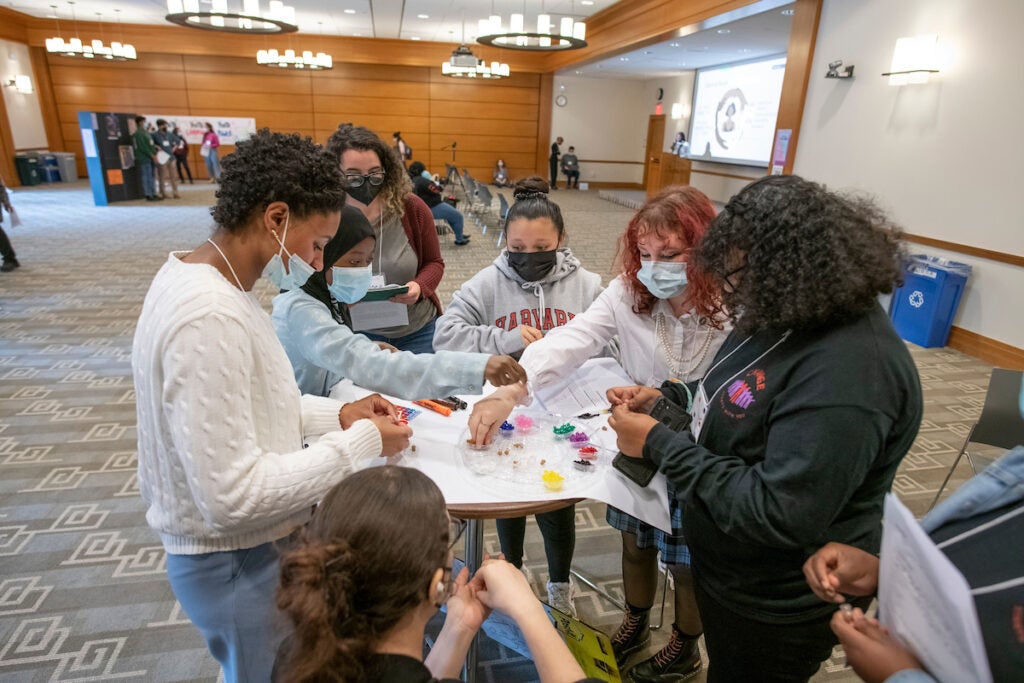
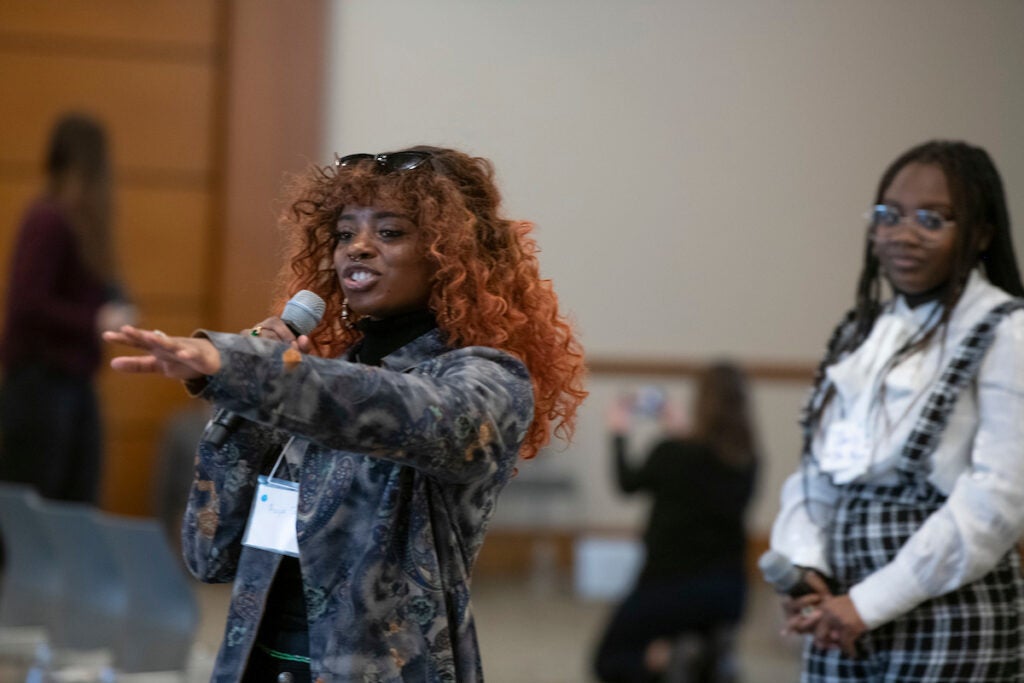
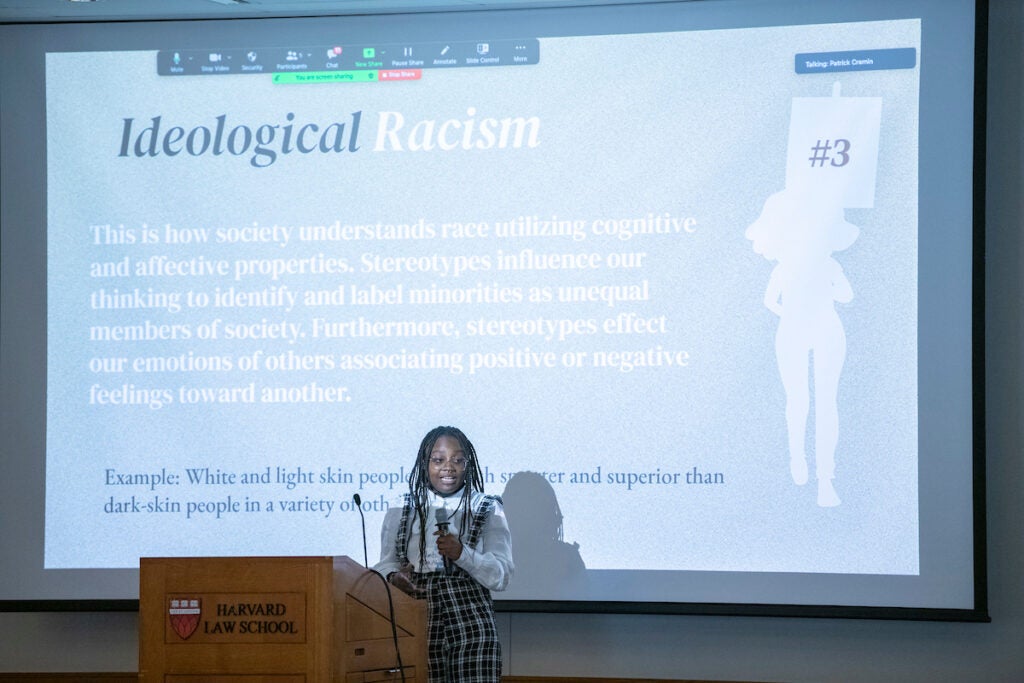
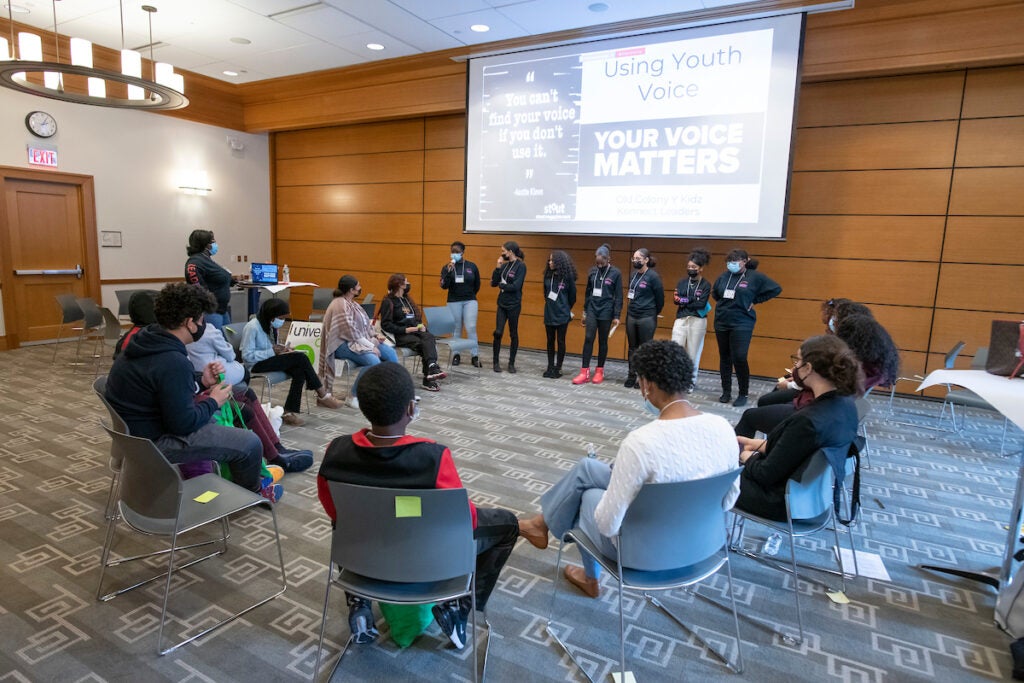
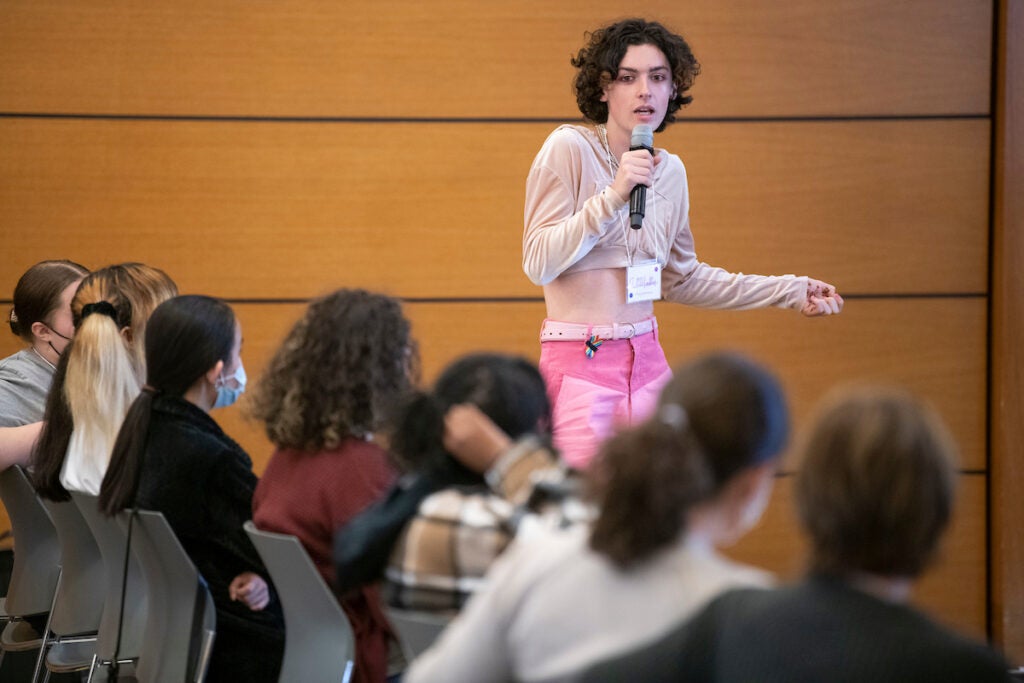
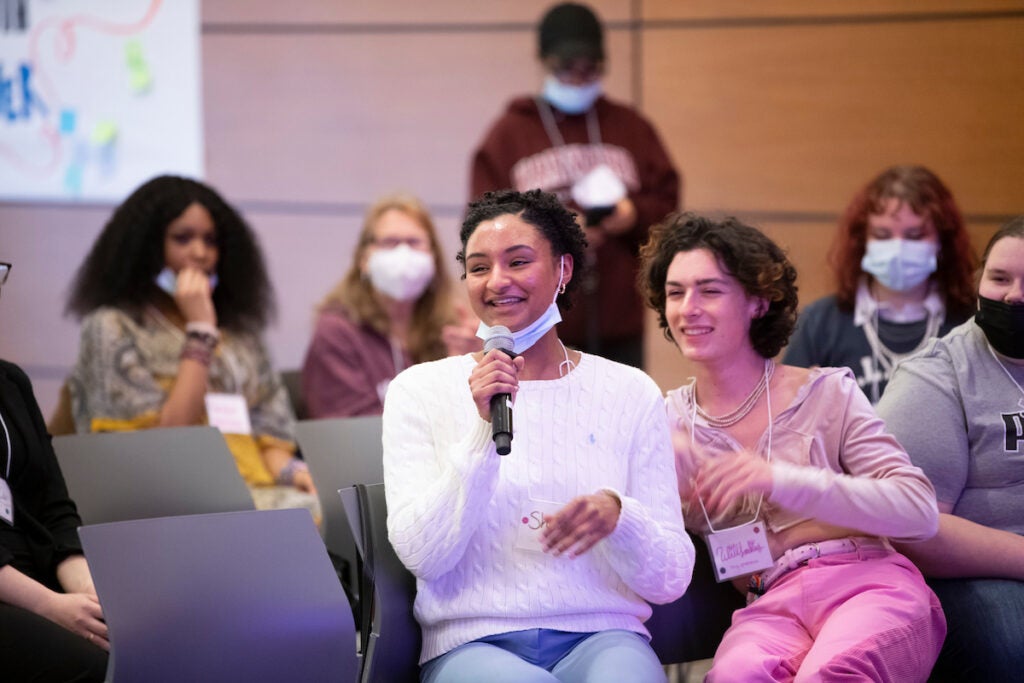
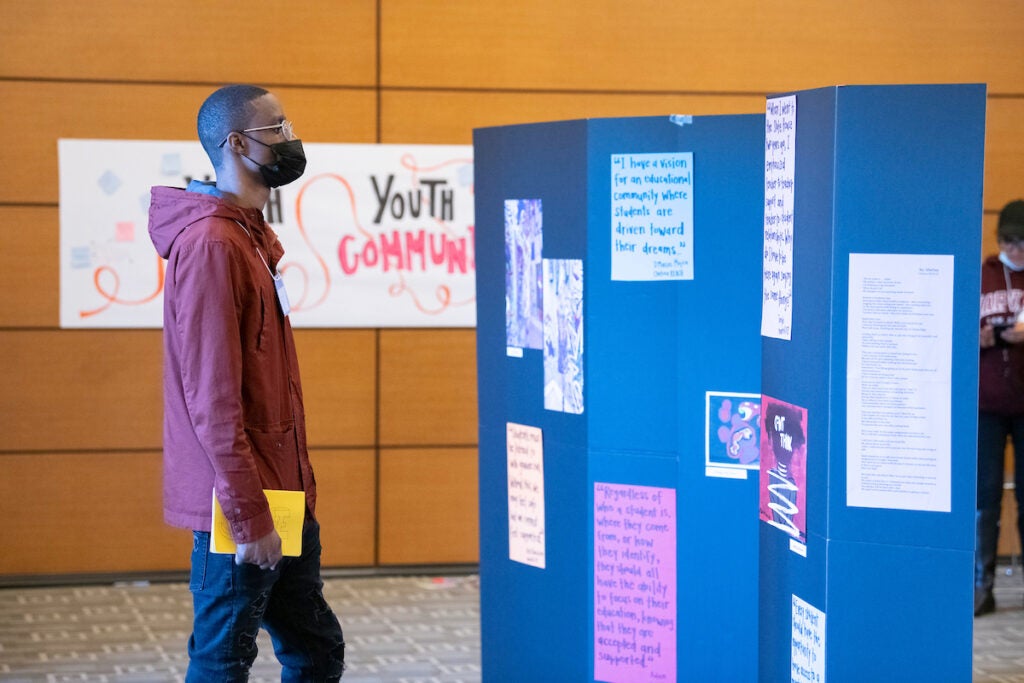
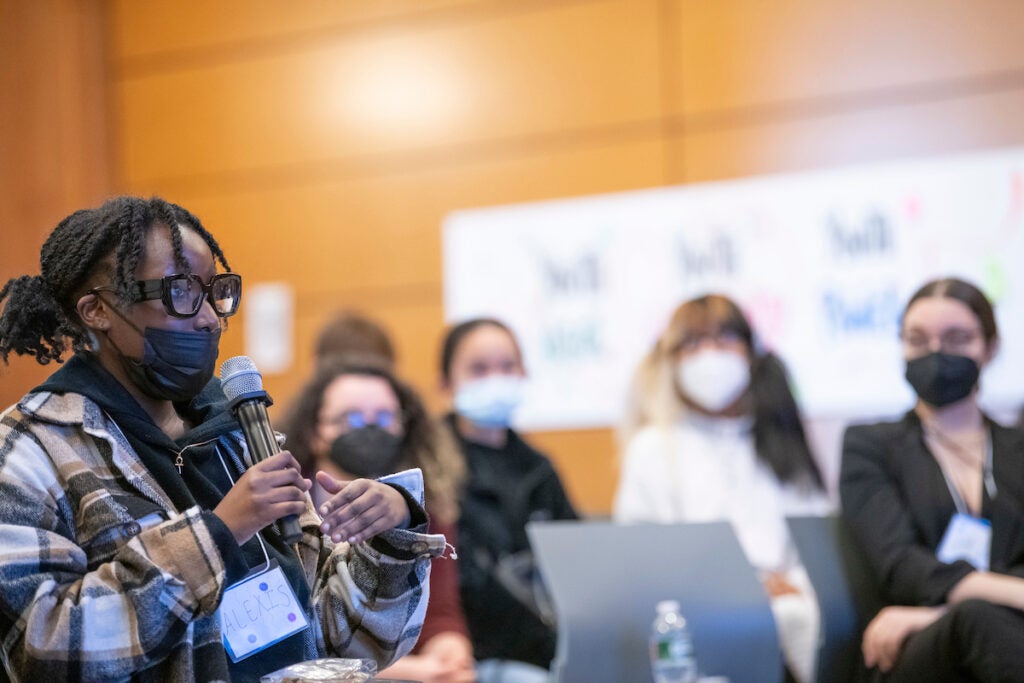
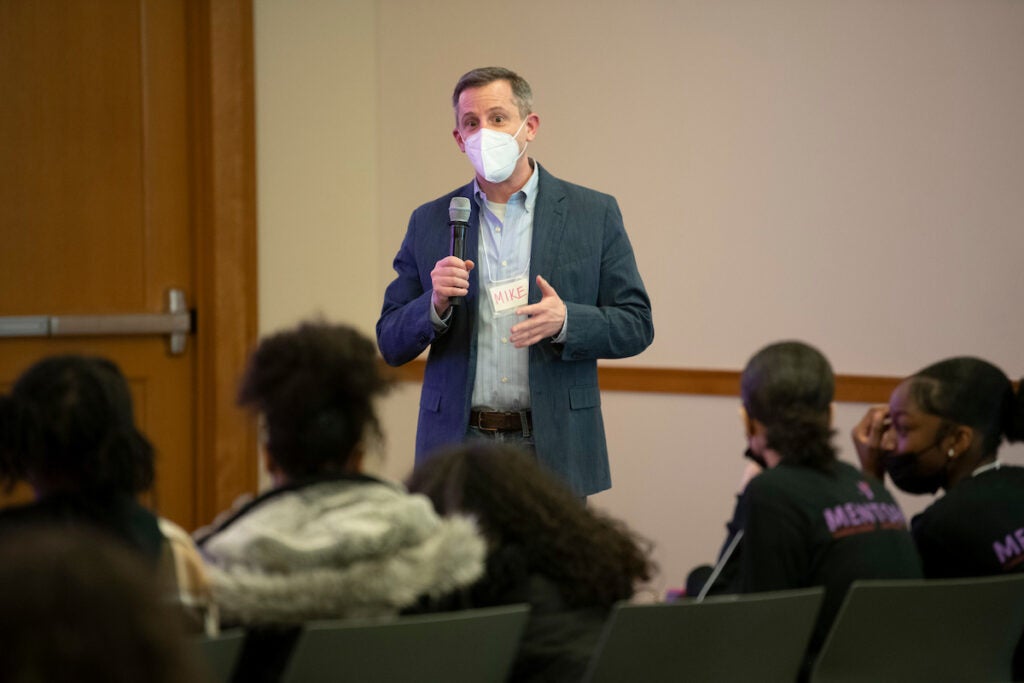
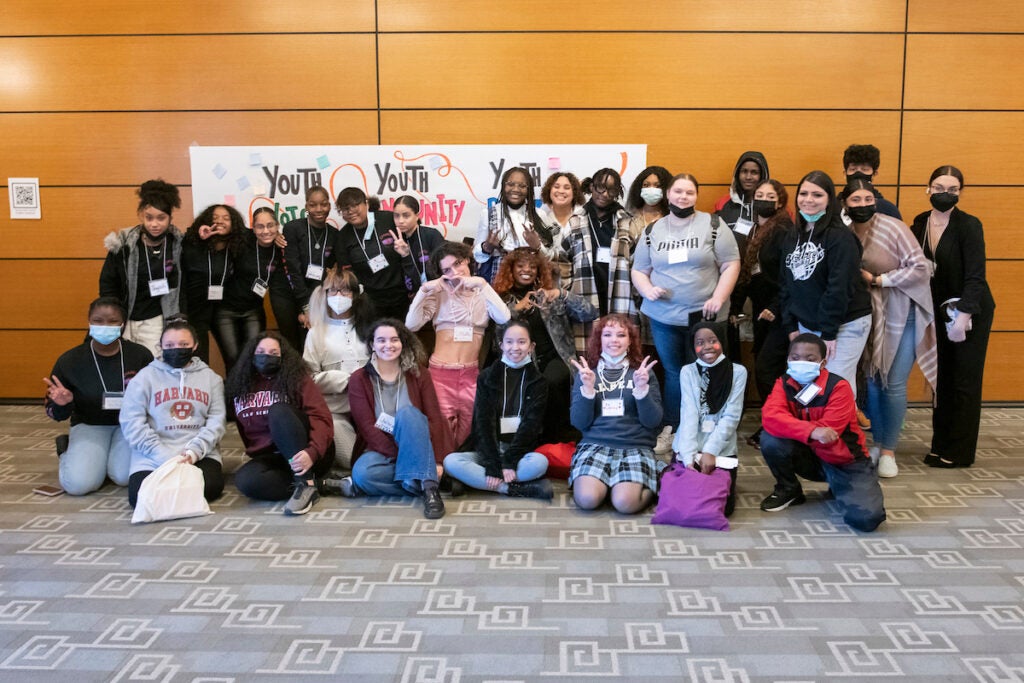
Filed in: Clinical Spotlight, Events
Tags: Class of 2022, Class of 2023, Education Law Clinic, Education Law Clinic (TLPI)
Contact Office of Clinical and Pro Bono Programs
Website:
hls.harvard.edu/clinics
Email:
clinical@law.harvard.edu

